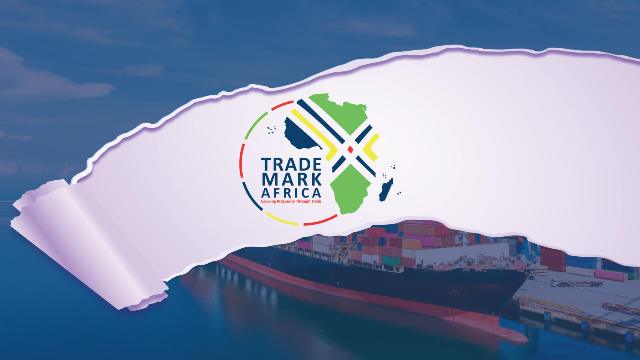Following over 13 years of supporting trade facilitation initiatives across East Africa, Southern Africa and the Horn of Africa, TradeMark Arica (TMA) has announced its third strategic plan billed to support more inclusive, greener, and digital trade initiatives. The strategy covers 2023-2030. TMA targets to raise and invest $700 million over the seven-year period.
TMA has stated that it aims to contribute to a further reduction of trade costs and increase efficiency in an expanded Pan-African posture. Specifically, it aims to facilitate an increase Africa’s share of exports as a percentage of global trade by 4% and the value of its exports to the rest of the world from $500 billion to $650 billion; whilst directly contributing to job creation. The seven-year plan dubbed Strategy 3 is anchored on calculated efforts to support implementation of the African Continental Free Trade Area (AfCFTA), the decarbonisation of trade and logistics processes in sub-Saharan Africa with an aim to leverage green investments to a tune of $180 million, while facilitating enterprises and governments through innovative automated systems to ease cross-border transactions and hasten movement of goods across select trade and transport corridors. Building on the successes of Strategy 1 and 2 (2010-2023), TMA will deepen its work on select corridors in the continent with a focus on reducing the time and cost it takes to trade across borders and trade nodes by 15%.
The strategy comes in the wake of TMA’s recent rebranding and expansion to West Africa with a new office in Ghana. TMA Board Chair, Amb. Erastus Mwencha noted that the strategy’s key focus will be to enhance trade facilitation across Africa with the goal of improving livelihoods by stimulating creation of jobs. Other important priorities such as driving towards a sustainable greener trade environment and enhancing inclusive trade, where the marginalised, especially women and the youth are supported to trade more in value added goods through formal trade channels, take the centre stage.
“At the heart of this plan is the recognition that sustainable and inclusive trade is a powerful tool for poverty reduction and economic growth; and that trade can be a catalyst to take on major global challenges including climate change, particularly in Africa as the continent positions itself for economic take-off,” Amb. Mwencha remarked. “We will retain our focus on reducing the time and cost it takes to trade across borders, with a target of doing so at selected corridors and trade nodes by 15%.”
On his part, TradeMark Africa Council of donors Chair, Mogens Larsen, remarked: “We are proud of the results TMA has achieved over the last 13 years, especially in reducing the time and cost of cross-border trade; and enabling businesses to capitalise on these gains, in an inclusive way. TMA’s Strategy 3 lays out a big step forwards in facilitating increased trade in Africa through green economic growth, with the solid conviction that Africa can both develop rapidly and can do so in a climate resilient way.”
TradeMark Africa Chief Executive Officer, David Beer said: “Over this strategic plan, TMA will both focus on what works best, in expanding our capabilities to deliver inclusive and sustainable trade across Africa; and will help tackle some of the major development challenges of today, not least the impact of climate change. Strong partnerships and political ownership wherever TMA works will remain critical to our success, which will be reinforced through delivering measurable results and rapid changes that make a concrete difference.”
Since its establishment in 2010, TMA has contributed to major reduction in the cost and time it takes to trade across borders in the Eastern Africa region, which has been its area of focus. Between 2017 to 2021, the time to transport a container from Mombasa to Kampala, for instance, reduced by a third. The time to cross select One Stop Border Posts (OSBPs) – which are the hallmark of TMA’s Strategy 1 and 2 work – has reduced by an average of 70%. Implementation of electronic single window systems, digital portals, integrated customs management systems, regional electronic cargo tracking, and automated trade exchanges have directly resulted in at least an 80% reduction in the time and cost of obtaining permits and related trade-related documentation. This has led to improved ease of doing business in the region.
TMA is renowned for its work in supporting efficiency through physical and digital infrastructure development, policies and capacity building at the ports of Mombasa and Dar es Salaam, support in development of customs systems for Revenue Authorities such as Kenya Revenue Authority iCMS, Uganda Revenue Authority (URA) – Asycuda World System and Burundi Revenue Authority’s customs system, national electronic single window systems in Uganda, Rwanda and Burundi. The Uganda Electronic Single Window has particularly eased import and export processes for traders in the landlocked country, with cost savings of about US$26.4 million in 2021 reported, according to URA reports. TMA’s women and trade programme, which is currently facilitated across 14 border points in Eastern Africa, has seen participants improve their incomes with women farmers indicating that their monthly median income increased by 18%, whilst average monthly income earned by women traders increased by 50% as established in an evaluation conducted last year.
TMA recently unveiled commercial arm, Trade Catalyst Africa (TCA), will be a key plank in mobilising finance for investment in commercially viable infrastructure projects. Leveraging the private finances to meet the demand for trade infrastructure is expected to meet TMA’s strategic goals in trade in Africa.

